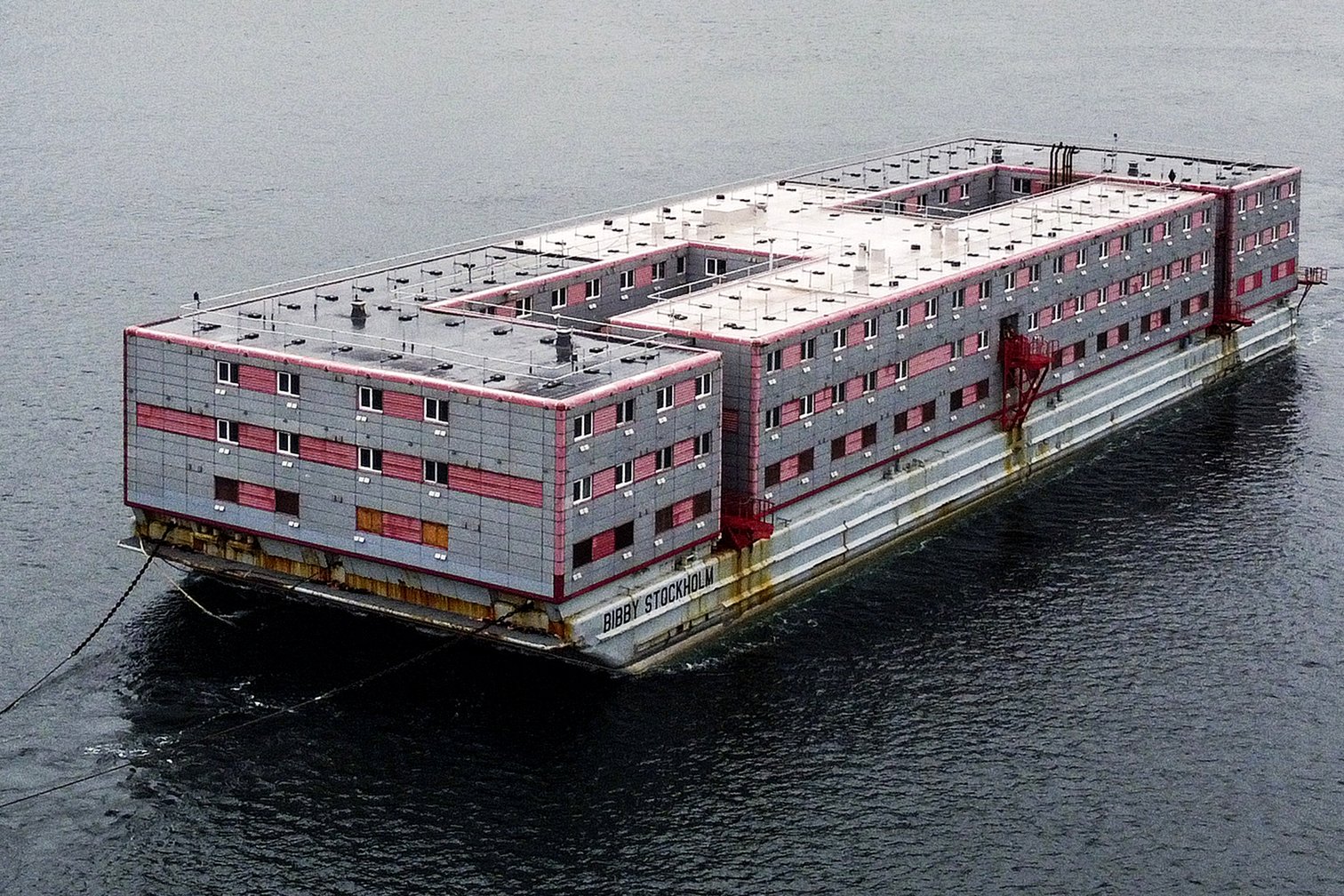If any of the survivors of the shipwreck make it to Calais, and brave another crossing over the English Channel, their reception will be no better than in Greece. Starting later this month, the Home Office plans to house people seeking asylum in the UK onboard a barge that has been likened to a floating prison by multiple organisations, including MSF UK.
The Bibby Stockholm is a barge that has been designed for 220 people. Is currently being refitted in Falmouth to accommodate 500 asylum seekers. It has been the target of an ongoing resistance campaign led by local groups, with regular protests and actions linking up to the #NoFloatingPrisons campaign launched by my refugee support organisation Reclaim The Sea.
Plans to dock more barges in Birkenhead (near Liverpool) and London have been rejected by local communities, councillors and MPs. London’s mayor, Sadiq Khan, has called the plans “cruel and inhumane”.
Cruel and inhumane are only two of the many adjectives that could be used to describe the proposals. Vicious, sadistic, twisted, violent, and ruthless also come to mind. Survivors of shipwrecks such as the one in Greece are likely to be traumatised by their experience. They will then be forced to get back on a boat.
Even the sight of the sea has retraumatised some asylum seekers. As Alex Kempton, a director at the Refugee Buddy Project, said this has been happening in coastal towns. “People placed in hotels along the seafront have asked for their rooms to be moved to the back of the hotel, or to be moved to a different hotel further inland, so they’re not looking out at the sea,” he said. “It’s traumatising for them.”
Instead of prioritising care for people seeking asylum, Prime Minister Rishi Sunak has instead said that “we cannot allow our generosity of spirit to be used as a weapon against us.” He has also suggested that people fleeing from torture, war and persecution should be happy to share rooms, demonstrating complete ignorance of the complex needs of traumatised individuals.
There are also concerns that people housed on the Bibby Stockholm and other barges will be at risk of drowning. On average, people seeking asylum are less likely to be able to swim than a British person. Eid, a Syrian refugee, said he never had swimming lessons in Syria. “It’s not as popular as it is in England,” he said. “[I have a] fear of being in the sea. I’ve never seen it in my whole life.”
Across the Middle East and East Africa, where most refugees in the UK originate, less than 50% of men and less than 25% of women can swim. If an asylum seeker housed on the Bibby Stockholm should fall, jump, or be pushed into the water, it is likely that they would be at severe risk of drowning.
Many of the people onboard this most recent shipwreck were from Afghanistan – a country that is landlocked. We can assume that, for their majority of them, this would have been their first, and last, voyage.
The government should scrap floating prisons
During my first ever sea rescue mission, the crew and I brought more than 200 people to safety in Sicily. As we approached our berth, they saw a towering cruise ship docked alongside. A group of women asked me what it was, and I had to tell them it was their next stop.
Everyone panicked. One woman said: “We’ve already been at sea for four days on a tiny wooden boat, then a week crammed together on this rescue ship. And now you want us to get back on a boat?”
If the government has a shred of humanity left, it must withdraw its plans to house people seeking asylum on floating prison barges. It is also vital that the Home Office offers safe and legal routes to those wishing to seek asylum in the UK. Mark Dowie, CEO of the Royal National Lifeboat Institution, summarised this urgent need. “I really don’t believe there is any solution other than a political solution which stops forcing people to take these sorts of risks,” he said.
I couldn’t agree more.


Comments
We encourage anyone to comment, please consult the oD commenting guidelines if you have any questions.